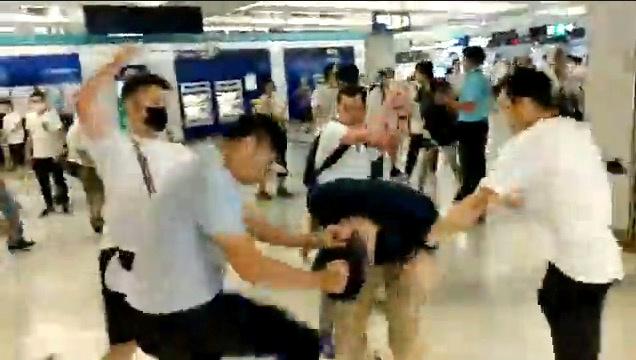Several governments and international rights groups have issued statements condemning recent violence in Hong Kong, which resulted in at least 45 injuries.
A group of men in white T-shirts wielding wooden and metal poles, rushed into the Yuen Long metro station on July 21 evening and began beating passengers, according to footage taken by commuters, journalists at the scene, and Democratic party lawmaker Lam Cheuk-ting, who was among those injured.



